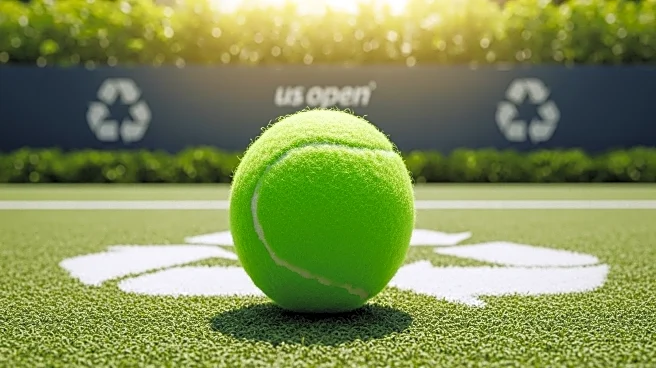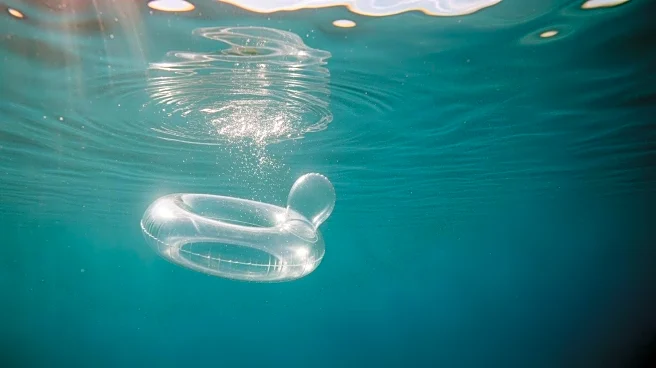What's Happening?
The US Open Tennis Championships have introduced a series of green initiatives aimed at reducing the event's environmental impact. These efforts include LEED Certified stadiums, recycling used racket strings, and eliminating single-use plastic waste. Transportation options such as electrified mass transit are encouraged to reduce emissions from air travel. The event also features compostable food packaging and paperless ticketing. Merchandise, including ball crew uniforms, is made from recycled plastic, and electric vehicles are showcased. These initiatives aim to make the event more sustainable while enhancing the overall experience for attendees.
Why It's Important?
The US Open's green initiatives reflect a growing trend in major events to prioritize sustainability. By reducing waste and emissions, the event sets a precedent for other large-scale gatherings. This approach not only benefits the environment but also aligns with increasing consumer demand for eco-friendly practices. The initiatives could influence other sports events and industries to adopt similar measures, potentially leading to broader environmental benefits. Stakeholders, including sponsors and attendees, may gain from the positive publicity and improved event experience associated with these sustainable practices.
What's Next?
The success of the US Open's green initiatives may encourage further developments in sustainable event planning. Organizers could expand these efforts by incorporating more recycled materials and enhancing waste management systems. Future events might also explore additional transportation options to further reduce emissions. Stakeholders, including sponsors and environmental groups, may advocate for continued improvements and increased transparency in sustainability efforts. The positive reception of these initiatives could lead to more widespread adoption across the sports industry.
Beyond the Headlines
The US Open's green initiatives highlight the ethical responsibility of large events to minimize their environmental footprint. This approach may inspire cultural shifts towards sustainability in sports and entertainment. The integration of eco-friendly practices could become a standard expectation, influencing consumer behavior and industry standards. Long-term, these efforts may contribute to broader societal changes in how events are organized and perceived, emphasizing the importance of environmental stewardship.











